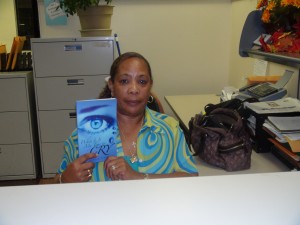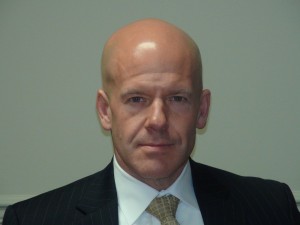Dr. Jo Anne Craig conveys universal message

TRENTON, N.J. — Dr. Jo Anne Craig chronicles her story in her first book, “When Is It My Time to Cry.” Often depicted as a strong, black woman, Dr. Craig uses the main character, Victoria, of her novel, to tell a story of overcoming.
A strong, black woman who has overcome childhood trauma, loss of loved ones, self-doubt, distrust in others, Dr. Craig is busy nowadays enjoying the victory of her successes.
“When you read the story the main character never got an opportunity to cry. She is portrayed as a strong black woman. Strong black women don’t cry. You shed a tear and you get over it and move on,” said Dr. Craig in a recent interview.
Dr. Craig, now an accomplished author, was born and raised in Trenton. She has her Ed.D. in Early Childhood and Adult Education from Nova Southeastern University in Ft. Lauderdale, Fla. She received her Master of Arts from Rider University, Lawrenceville, N.J., and her bachelor’s degree from Temple University, Philadelphia.
Craig presently works as an Asst. Prof. of English at Mercer County Community College in Trenton.
Victoria story tells of her childhood when she was raped, exposed to the indignity of incest, “suffered through a session at the Youth House and County Jail with the door locked behind her, a bleak outlook for the future, and a baby on the way,” says Dr. Craig.
Her book was published in June of 2011 and was available to the public in October. Since then Dr. Craig has been busy at book-signing events and has been invited to guest speak at various venues.
“I was at the Philadelphia Osteopathic Medical building last night at the Delaware Black Psychologists Association where actually I did some networking and I have been invited to be a guest lecturer in reference to the book because it deals with issues that communities are faced with even today in society,” said Dr. Craig during our interview.
Dr. Craig notes that her book is relevant to everyone, because everybody has experienced, in some way, some of the issues she mentions in her book.
“These issues are relevant to society and our cultural society today. Rape, incest, giving up hope, loss of loved ones, dealing with one’s inner self, losing faith in God, losing faith in yourself and trying to let go of the past and move on in life. So these issues are what we are faced with today. How do we get beyond something that’s happened to us 15, 20, maybe 40 years ago?” She asked.
She emphasized that her book has a specific target audience: Those who have endured the same issues that her main character, Victoria, has.
“When we carry the past into our present lifestyle or our present life, it begins to hinder us from moving forward in all aspects of life: In relationships, it hinders us from being able to love, it hinders one from believing in self; our self-esteem is so low, when we are victims of such heinous crimes,” she laments.
She thinks the main character in her book exemplifies how one should overcome such issues. She depicts a strong woman whom others can relate to, she said. If other people who are in the same situations adapt to her way of addressing such circumstances, then they will be able to overcome their problems, said Dr. Craig.
“Some people don’t know how to let go and move on,’’ said Dr. Craig. “They wear the past like a belt around their waist that cuts off their breath, and they don’t know how to unbuckle it to release the breath and move on in life.”
However, her book is not meant to directly give solutions to the problems she mentions.
“They are not solutions. They are just what the main character felt that was workable for her, and if other people who are in a similar situation adapt them, they are able to let go and not be shackled by the past,” said Dr. Craig.
Dr. Craig recently was a guest on Yolanda Robinson’s Reel Talk Show, WiFi 1460 AM, and will be appearing on her show again Aug. 31, 2012, 8 to 10 a.m.




